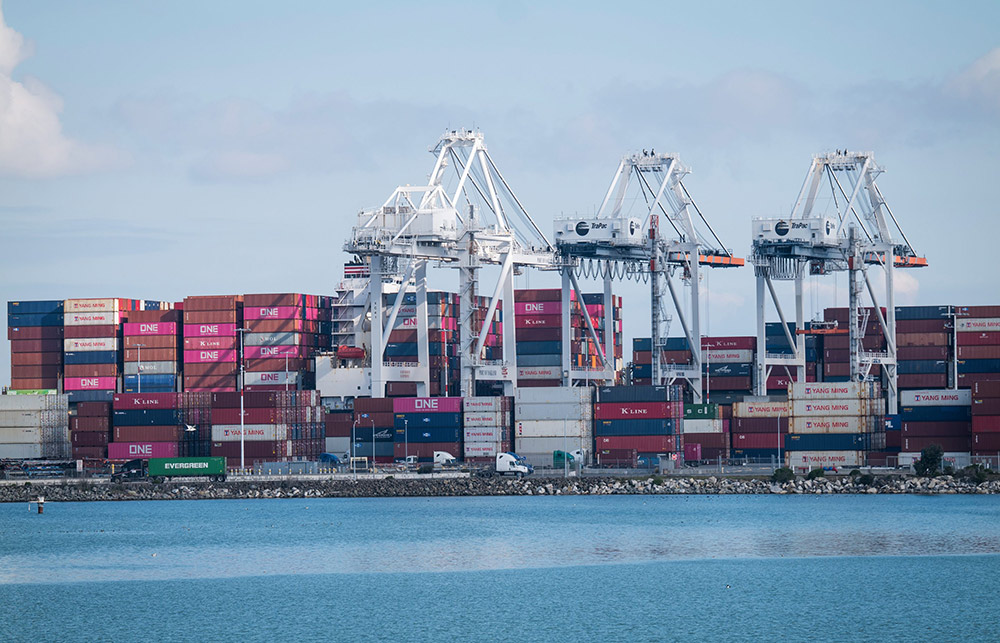
当全球都在与不断肆虐的新型冠状病毒抗争时,俄罗斯和OPEC国家增加能源供应所造成的市场波动,又给美国能源业带来了二次冲击。
自2000年代后期,美国已成为全球领先的石油和天然气生产国。上月,为满足消费者需求,美国创下了石油产量1300万桶,天然气产量965亿立方英尺的历史记录。
水力压裂等创新技术的应用,使生产商能够对美国储量丰富的页岩油气进行开采。美国能源供应由此从短缺变成充足,美国也因此从能源进口国变成了出口国。
面对美国能源领导地位的威胁,全球多个国家开始积极采取措施以抑制美国能源业的发展,这并不意外。需求下降的情况下,俄罗斯等国仍在短期内增加全球能源供应,就是为了应对美国作为全球能源超级大国所带来的新发展模式。新型冠状病毒疫情的确使这种棘手局面变得更加复杂,但贸易保护主义措施等通过政府干预的手段,绝对不是解决问题的答案。
虽然各大媒体头条都报道,美国不可能在这场全球能源市场风波中完全幸免;但与二十年前相比,今天美国的经济和能源安全已经有所改善。如果从历史和市场基本面的角度进行衡量,美国将更加强大并继续发挥必要的能源领导力,同时满足全世界对天然气和石油的长期需求。
我们无数次看到,自由市场政策能够提高行业稳定性,促进行业发展。当全球市场出现动荡时,关税、制裁等应对措施最终会伤害到美国生产商及消费者。
事实上,石油天然气行业有许多理由可以反对政府采取加征关税或实行配额等有害的贸易措施。
首先,关税会导致美国必须进口的关键生产材料涨价,延误能源项目进度,从而影响美国的能源领导地位。对外加征关税已经导致关键工业原材料的成本增加。因此不能在这场公共健康危机中重蹈覆辙。
相反,政府应该通过外交手段解决问题,并与全球供应合作伙伴共同应对当前供应过剩的市场环境。
其次,过去几十年,经历过短暂的经济萧条和地缘政治博弈之后,全球能源需求依旧强劲。例如上世纪七八十年代,全球能源市场发生的重大事件,以及其后的每一次经济衰退,包括2008-2009年的金融危机。市场在事后都成功反弹。
虽然全球对美国能源产品的短期需求可能会有所下降,但长期需求依旧强劲。OPEC和国际能源署最近下调了短期需求预测,但美国石油的特定物理性质,如低粘度和低硫含量等,使其适用于相对简单和低成本的炼油工艺,所以美国石油在国际市场上很受欢迎。
从全球炼油产能及其增长情况来看,亚太地区尤其是中国和印度是增长最快的市场,其对轻质原油的需求量最大。去年亚太地区购买了42%的美国出口原油。随着全球人口恢复正常、经济规模扩大以及生活标准的不断提高,这种趋势不会改变。
第三,美国石油天然气行业曾经经历过市场下滑,其恢复能力和创新力都经过了实践的检验。技术创新将提高生产效率,新管道基础设施也证明了美国能源革命的实力和持久力。
最后,美国石油天然气行业必定会有长期规划和投资领域。其需要通过持续的资本投入,以确保在任何情况下都能满足能源需求。同样悬而未决还有,当前急需的数万亿美元基础设施建设和投资,以及数十亿美元的资本项目建设。
市场的意外波动,给美国能源业、员工、各州及生活社区都带来了不小的挑战,他们都扮演着至关重要的角色。当下的挑战无须粉饰:新型冠状病毒带来了巨大的不确定性,未来几周甚至几个月,所有行业都将面临艰难的决定。
美国及其石油天然气行业,都曾经历过一段错综复杂的时期。问题解决者们将致力于提供安全可靠、经济实惠和更清洁的能源,以克服眼前及未来的挑战。石油天然气行业必定维稳。(财富中文网)
本文作者迈克·萨默斯现任美国石油协会(American Petroleum Institute)主席兼CEO。
翻译:刘进龙
审校 :汪皓
当全球都在与不断肆虐的新型冠状病毒抗争时,俄罗斯和OPEC国家增加能源供应所造成的市场波动,又给美国能源业带来了二次冲击。
自2000年代后期,美国已成为全球领先的石油和天然气生产国。上月,为满足消费者需求,美国创下了石油产量1300万桶,天然气产量965亿立方英尺的历史记录。
水力压裂等创新技术的应用,使生产商能够对美国储量丰富的页岩油气进行开采。美国能源供应由此从短缺变成充足,美国也因此从能源进口国变成了出口国。
面对美国能源领导地位的威胁,全球多个国家开始积极采取措施以抑制美国能源业的发展,这并不意外。需求下降的情况下,俄罗斯等国仍在短期内增加全球能源供应,就是为了应对美国作为全球能源超级大国所带来的新发展模式。新型冠状病毒疫情的确使这种棘手局面变得更加复杂,但贸易保护主义措施等通过政府干预的手段,绝对不是解决问题的答案。
虽然各大媒体头条都报道,美国不可能在这场全球能源市场风波中完全幸免;但与二十年前相比,今天美国的经济和能源安全已经有所改善。如果从历史和市场基本面的角度进行衡量,美国将更加强大并继续发挥必要的能源领导力,同时满足全世界对天然气和石油的长期需求。
我们无数次看到,自由市场政策能够提高行业稳定性,促进行业发展。当全球市场出现动荡时,关税、制裁等应对措施最终会伤害到美国生产商及消费者。
事实上,石油天然气行业有许多理由可以反对政府采取加征关税或实行配额等有害的贸易措施。
首先,关税会导致美国必须进口的关键生产材料涨价,延误能源项目进度,从而影响美国的能源领导地位。对外加征关税已经导致关键工业原材料的成本增加。因此不能在这场公共健康危机中重蹈覆辙。
相反,政府应该通过外交手段解决问题,并与全球供应合作伙伴共同应对当前供应过剩的市场环境。
其次,过去几十年,经历过短暂的经济萧条和地缘政治博弈之后,全球能源需求依旧强劲。例如上世纪七八十年代,全球能源市场发生的重大事件,以及其后的每一次经济衰退,包括2008-2009年的金融危机。市场在事后都成功反弹。
虽然全球对美国能源产品的短期需求可能会有所下降,但长期需求依旧强劲。OPEC和国际能源署最近下调了短期需求预测,但美国石油的特定物理性质,如低粘度和低硫含量等,使其适用于相对简单和低成本的炼油工艺,所以美国石油在国际市场上很受欢迎。
从全球炼油产能及其增长情况来看,亚太地区尤其是中国和印度是增长最快的市场,其对轻质原油的需求量最大。去年亚太地区购买了42%的美国出口原油。随着全球人口恢复正常、经济规模扩大以及生活标准的不断提高,这种趋势不会改变。
第三,美国石油天然气行业曾经经历过市场下滑,其恢复能力和创新力都经过了实践的检验。技术创新将提高生产效率,新管道基础设施也证明了美国能源革命的实力和持久力。
最后,美国石油天然气行业必定会有长期规划和投资领域。其需要通过持续的资本投入,以确保在任何情况下都能满足能源需求。同样悬而未决还有,当前急需的数万亿美元基础设施建设和投资,以及数十亿美元的资本项目建设。
市场的意外波动,给美国能源业、员工、各州及生活社区都带来了不小的挑战,他们都扮演着至关重要的角色。当下的挑战无须粉饰:新型冠状病毒带来了巨大的不确定性,未来几周甚至几个月,所有行业都将面临艰难的决定。
美国及其石油天然气行业,都曾经历过一段错综复杂的时期。问题解决者们将致力于提供安全可靠、经济实惠和更清洁的能源,以克服眼前及未来的挑战。石油天然气行业必定维稳。(财富中文网)
本文作者迈克·萨默斯现任美国石油协会(American Petroleum Institute)主席兼CEO。
翻译:刘进龙
审校 :汪皓
As the world grapples with the ongoing spread of the coronavirus, the decision by Russia and the OPEC nations to increase energy supplies while demand is dropping has contributed to ongoing market instability and delivered a shock to America’s evolving energy picture.
Since the late 2000s, the U.S. has emerged as the world’s leading producer of natural gas and oil—last month producing at estimated record levels of 13 million barrels of oil and 96.5 billion cubic feet of natural gas to meet consumer demand.
Innovative technologies like hydraulic fracturing have enabled producers to reach abundant U.S. shale reserves, and thus changed America’s trajectory from energy scarcity to abundance and from importing energy to exporting it.
It is not surprising, then, that some global energy players are threatened by American energy leadership and have actively tried to prevent its progress. Russia and other nations’ push to increase global energy supply despite lower demand in the short term is a reaction to America’s new paradigm as a global energy superpower. This is a challenging situation, compounded by the impact of the coronavirus, but interventions like protectionist trade measures are not the answer.
While today’s headlines demonstrate that our nation isn’t shielded entirely from impacts to global energy markets, America is in a better economic and energy security position today than it was in the past two decades. If history and market fundamentals are any measure, the U.S. will emerge stronger and continue to provide necessary energy leadership to continue to meet the world’s long-term demand for natural gas and oil.
We’ve seen time and again that free market policies provide greater stability and growth. Certain reactions in times of global market unrest—such as tariffs or sanctions—ultimately hurt U.S. producers and consumers.
There are multiple reasons the oil and natural gas industry does not want the government to enact harmful trade measures like tariffs or quotas.
First, tariffs delay energy projects by increasing the price of critical production materials not available in the U.S., hurting American energy leadership. Imposing tariffs on foreign countries has already resulted in higher costs for vital industry inputs. We shouldn’t repeat those mistakes during a public health crisis.
Instead, the administration should resolve these issues diplomatically and engage with our global supply partners to address the currently oversupplied market environment.
Second, global energy demand has remained robust for decades, following periods of transitory economic duress and geopolitical jockeying. Prominent examples are the seminal global oil market events of the 1970s and 80s and every recession since then, including the financial crisis of 2008-09. Markets bounce back.
Short-term demand for our products may be down, but long-term energy needs across the globe remain strong. OPEC and the International Energy Agency recently cut short-term demand projections, but certain physical properties—light viscosity and low sulfur content—make U.S. oil an attractive international product, as it is well-suited for relatively simple and low-cost refining processes globally.
When you look at refining capacity and its growth around the world, the Asia Pacific region, and especially China and India, are the fastest-growing markets, with the most voracious appetites for light crude oil. Last year, despite trade tensions, the Asia Pacific region purchased 42% of U.S. crude oil exports. That won’t change as populations return to normal, economies expand, and living standards improve worldwide.
Third, this is an industry that has proven resilient and innovative through market downturns in the past. Technological innovation is leading to productivity gains and new pipeline infrastructure is a testament to the strength and staying power of the U.S. energy revolution.
Finally, the natural gas and oil industry has, by necessity, long-term planning and investment horizons that require continued capital commitments to ensure that energy demands are met no matter what. What hangs in the balance now for the U.S. are trillions of dollars in much-needed existing energy infrastructure and investments, plus billions more in capital projects construction.
There’s no sugarcoating the challenges that unexpected market shifts present to America’s energy industry, our employees, and the states and communities where we live, all of which are vital to America. All industries face difficult decisions in the coming weeks and months, as the coronavirus has unleashed significant uncertainty.
As a nation and industry, we have weathered complicated periods before. The natural gas and oil industry will stay steady as problem solvers focused on providing safe, reliable, affordable, and cleaner energy to overcome immediate and future challenges.
Mike Sommers is president and CEO of the American Petroleum Institute.






